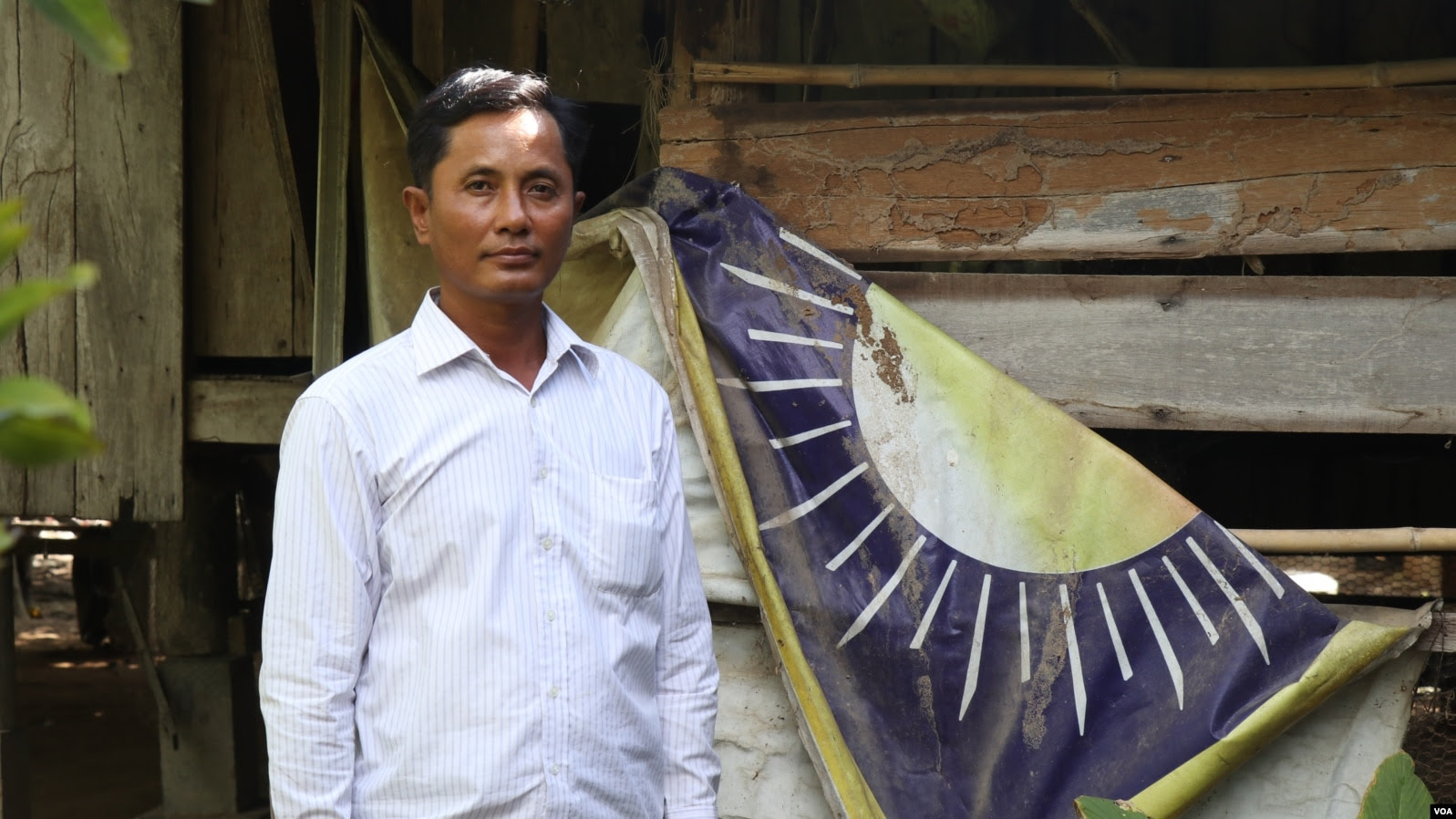Cambodia’s Grassroots Opposition Activists Wait for ‘Right Time’ to Re-emerge
samlot chit
BATTAMBANG PROVINCE — It’s been four years since the Cambodia National Rescue Party was dissolved, however Prak Chhorn, a former commune councilor in Battambang province, is still itching to be involved in politics. He says he’s just waiting for the “right time” to restart his public activism.
“There is now a noncompetitive opposition party,” said 53-year-old Chhorn, who lives in Stok Broveuk commune in Rukhak Kiri district.
As the next round of local elections approaches on June 5, 2022, many local activists of the now-banned opposition party are still keen to take on the ruling Cambodian People’s Party, despite many of their dissident colleagues being imprisoned, harassed, beaten and fleeing into exile.
And the space for anti-government activities is only getting tighter, as Prime Minister Hun Sen recently reignited his warnings of a “color revolution,” a charge that was at the center of the legal case to dissolve CNRP, ordering military and police forces to be ready to crack down.
Chhorn, an opposition hardliner who initially joined the Sam Rainsy Party before it joined forces with Kem Sokha’s Human Rights Party to form the CNRP in 2012, was among 5,007 opposition commune councilors elected in 2017, cementing the party as a genuine threat to Hun Sen’s power.
As the ruling party has sought to swipe all traces of the CNRP from Cambodia’s political landscape, Chhorn is among the hundreds of activists and officials who have faced legal and physical threats.
In November 2019, Chhorn was arrested at his home and detained at the police station for a day before being released. And he has been hit with at least two charges in court, though he doesn’t know if they have been dropped or not — and due to new political party laws those charges could bar him from future office.
“I don’t have complete freedom right now since I am unsure whether my case has been dropped or not,” he told VOA Khmer in a recent interview.
“There are many difficulties for grassroots activists. But what I have to do is to move forward for change,” he added. “I want to see real democracy in Cambodia. Democracy is just in paper, not in practice.”
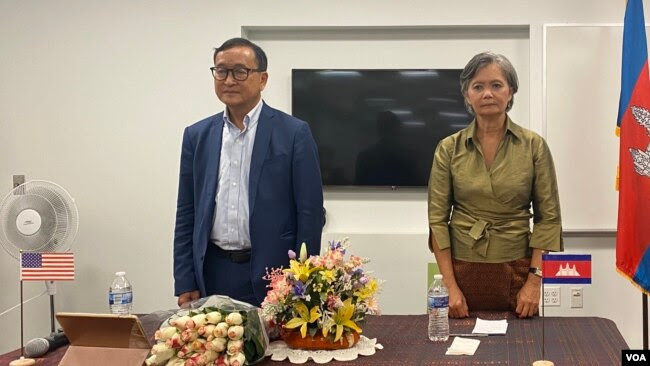

Opposition in disarray
While the elimination of Cambodia’s only major opposition party may have revealed the fragile state of Cambodia’s democracy, the CNRP has never seemed as divided as its leaders attempt to find a way to remain relevant and build momentum ahead of the next elections.
In November, a rift opened between the two CNRP coalition partners, led by Sam Rainsy and Kem Sokha, as factions loyal to each of the longtime opposition leaders pursued separate political plans.
Sokha and his allies, many who remain in Cambodia, have maintained a strategic silence and set up the Cambodiaism Party, as they seek restoration of their political rights. Meanwhile, Rainsy and his top deputies — Mu Sochua and Eng Chhai Eang — manage the party’s feisty social media presence and global network of supporters from overseas.
Ahead of June’s commune election, a number of former CNRP commune chiefs and councilors still in the country have also started organizing under the Candlelight Party, an obvious allusion to the logo of Rainsy’s former, eponymously named party.
Sokha, who remains under court supervision for allegedly conspiring with the United States to overthrow Hun Sen, posted a message on his Facebook page on November 28, asking Sam Rainsy to stop using his name and image for any political activities. He accused his partner of undermining the spirit of party unity by openly supporting the Candlelight Party.
“Their actions showed that Sam Rainsy and Kem Sokha are not one person, because all these activities don’t have any support from me or [reflect] my stance,” reads Kem Sokha’s Facebook post.
Rainsy, who has repeatedly accused Prime Minister Hun Sen of attempting to split the CNRP, said in a Facebook post that Sokha was speaking as a “political hostage,” a claim that both Sokha and Hun Sen denied.
After Kem Sokha posted his public message on Facebook, Phnom Penh court in December set a date for his long-delayed trial on treason charges, ordering him to appear at the court on Jan. 19 — fueling speculation that Sokha’s statement was part of a bid to have the charges dropped and return to politics.
Sebastian Strangio, a journalist and author of “Hun Sen's Cambodia,” wrote in a commentary article published in The Diplomat in late November: “In the country’s increasingly inhospitable political climate, it is less surprising that such a rift has emerged than that the Sokha-Rainsy pact managed to survive as long as it has.”
Eng Chhai Eang said in a previous interview with VOA Khmer that opposition leaders will continue to do advocacy from abroad as politicians in the country “are unable to say anything.”
“The leaders will not abandon CNRP,” he added.

Fear at the grassroots
Chhorn says villagers in his commune don’t dare to openly talk to him about politics. “If I meet people in public, they are scared but meeting them at home is fine. They talk more,” he said.
Other opposition activists have given up, for now at least. Chea Chiv, 41, is among 118 CNRP figures who were banned from doing politics for five years. He has not asked for his political rights to be reinstated since he thinks there is no potential opposition party to contest elections.
Chiv still faces two charges and was jailed for 10 days in 2020 for allegedly conspiring along with dozens of party colleagues to incite social unrest by supporting Sam Rainsy’s return to Cambodia.
“I remain silent and completely ignore any political affairs,” he said.
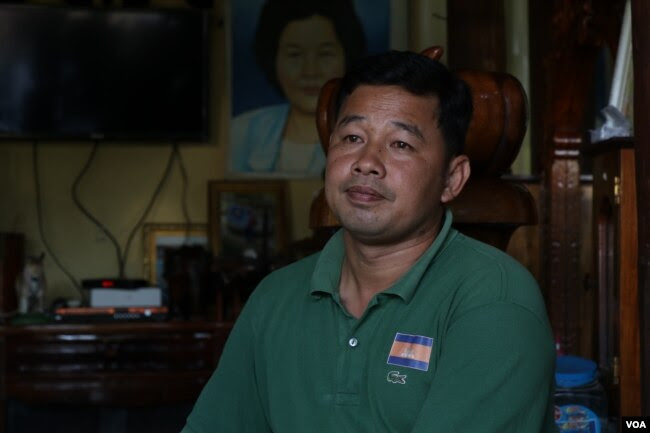
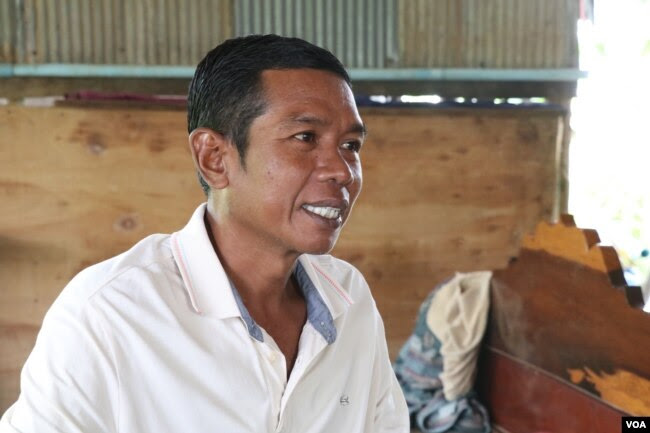
Rom Saron, 49, a rice farmer and former CNRP councilor in Tbeng Meanchey commune, is ready to return to politics but is waiting for the country’s leaders to be “compromising” with each other. He urged the CPP to allow the opposition to come back to contest elections in 2022 and 2023, and release its activists.
“It is not true with the accusation of treason…It is very severe. Please don’t use this word for Cambodians who have the common will to develop the country,” he said.
Sin Chanpeourozet, the former chief of O’char commune in Battambang province, decided to join the Candlelight Party, which she describes as a return to the former Sam Rainsy Party, with similar ideals to the dissolved CNRP.
“People still support me. We will win if we stand in the commune election,” she said, noting that CNRP won seven of 11 seats in the 2017 commune election, allowing her to become commune chief for around four months prior to party’s dissolution.
“People are under pressure so they can’t speak from their hearts,” she added.
Chanpeourozet, as with many other activists, says she has been under surveillance from local authorities. “Ahead of November 9 [2019], when Sam Rainsy announced his return, police came to guard in front of my house since November 5,” she said.
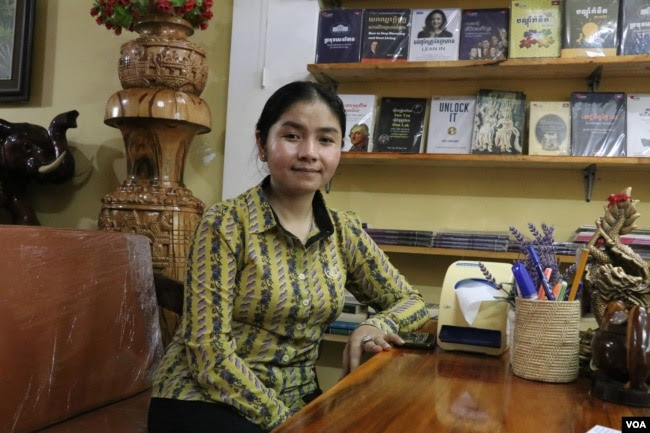
After the Candlelight Party restarted activities, a former CNRP deputy commune chief who joined the party in Oddar Meanchey province was arrested in November, which opposition activists say sent a chilling message to others looking to run in the 2022 local election.
On December 29, Hun Sen said the threat of a color revolution remained, and last month restated his commitment to making sure it couldn’t take root in the country.
“I don’t allow you to wage color revolution,” Hun Sen said in a public event, without naming specific individuals. “If they completely want to topple us, we have to completely decimate them.”
Sok Eysan, a CPP spokesman, said the ruling party does not “threaten and intimidate” any activists, adding that they can join any political parties registered at the Interior Ministry. The Candlelight Party, along with at least one party aligned with Sokha, have been registered with the ministry.
“But the former opposition members can’t follow the tricks of the opposition party since they are illegal rebels,” he told VOA Khmer.
It is hard, Chanpeourozet admits, to fight for democracy in Cambodia when the ruling party has control of the courts and can “destroy” the opposition party at any time. But she says she hasn’t lost hope.
“I think hope for the fighters still exists. Though I die, there is still the next generation…we don’t lose hope,” she said.

